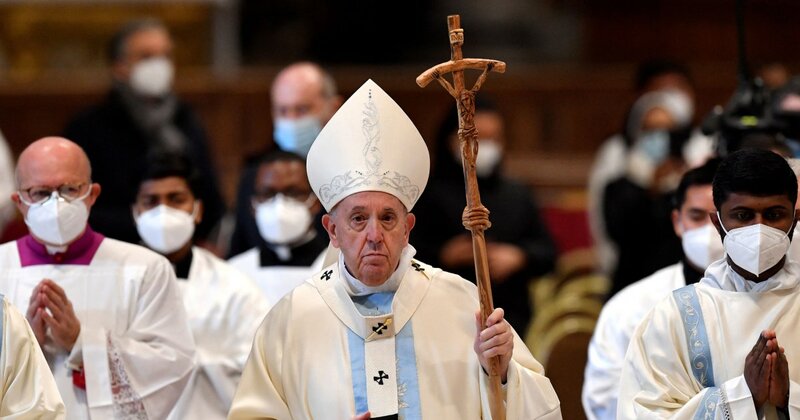Posted on Feb 24, 2022
Opinion | Baptism scandal points to something very wrong in the Catholic Church
779
10
4
7
7
0
Posted 4 y ago
Responses: 3
I've been following this story since it was first reported to the press. A Priest utters one wrong word during 100s of baptisms and now the RC Church invalidates the baptisms! Really?!?! God will invalidate 100s of sacraments because of a human error? Me thinks not. Would God create man as an imperfect being and then punish the faithful for one word spoken mistakingly? Again, I think not. This is the perfect example of religion versus faith. Man making rules that don't support the Word as written or intended. Punishing others because a priest in good faith made a minor error in a ritual written by other men., Will Christ void all the other sacraments where an err occurred. I cant believe that. I wont believe that. My prayers to the Priest and those "unbaptised" going through a crisis.
(2)
(0)
SR Kenneth Beck
If I may submit for your information the term Baptism of Desire.
In A.D. 256, Cyprian of Carthage stated of catechumens who are martyred before baptism, “They certainly are not deprived of the sacrament of baptism who are baptized with the most glorious and greatest baptism of blood, concerning which the Lord also said that he had ‘another baptism to be baptized with’ (Luke 12:50)” (Letters 72 [73]:22).
That is taught in the Catechism of the Catholic Church 1259 and 1281
https://www.youtube.com/watch?v=qsFbqk6Fx7U
In A.D. 256, Cyprian of Carthage stated of catechumens who are martyred before baptism, “They certainly are not deprived of the sacrament of baptism who are baptized with the most glorious and greatest baptism of blood, concerning which the Lord also said that he had ‘another baptism to be baptized with’ (Luke 12:50)” (Letters 72 [73]:22).
That is taught in the Catechism of the Catholic Church 1259 and 1281
https://www.youtube.com/watch?v=qsFbqk6Fx7U
(0)
(0)
If I may submit for your information the term Baptism of Desire.
In A.D. 256, Cyprian of Carthage stated of catechumens who are martyred before baptism, “They certainly are not deprived of the sacrament of baptism who are baptized with the most glorious and greatest baptism of blood, concerning which the Lord also said that he had ‘another baptism to be baptized with’ (Luke 12:50)” (Letters 72 [73]:22).
That is taught in the Catechism of the Catholic Church 1259 and 1281
https://www.youtube.com/watch?v=qsFbqk6Fx7U
In A.D. 256, Cyprian of Carthage stated of catechumens who are martyred before baptism, “They certainly are not deprived of the sacrament of baptism who are baptized with the most glorious and greatest baptism of blood, concerning which the Lord also said that he had ‘another baptism to be baptized with’ (Luke 12:50)” (Letters 72 [73]:22).
That is taught in the Catechism of the Catholic Church 1259 and 1281
https://www.youtube.com/watch?v=qsFbqk6Fx7U
(1)
(0)
I didn’t know it was a scandal, but according to the op Ed, it’s another example of a “government” employee overreaching. Francis says one thing, but the ruling, obviously not from Francis, says another.
(0)
(0)
Read This Next



 Religion
Religion Christianity
Christianity




